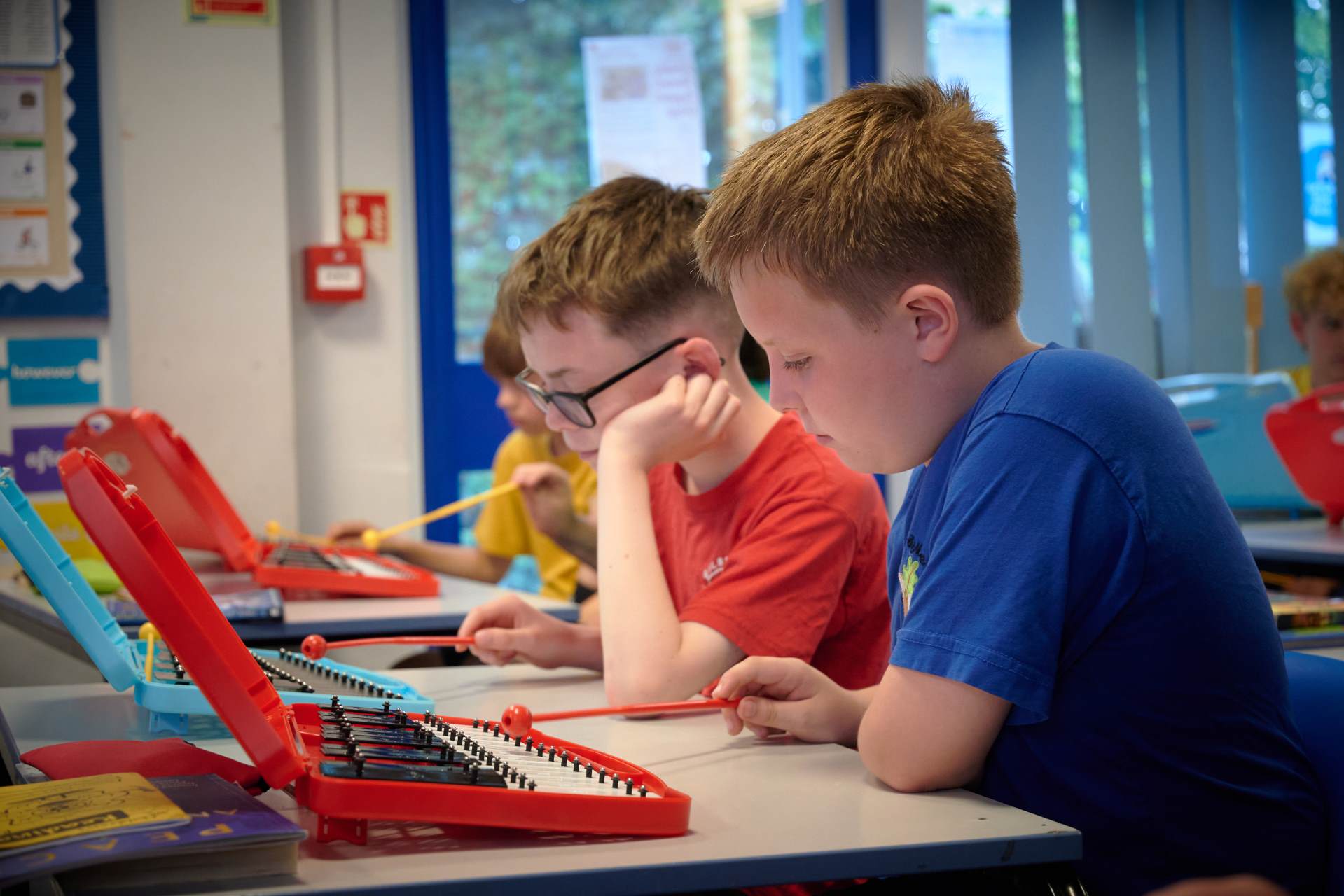Music

Intent
The National Curriculum for music aims to ensure that all pupils:
- Perform, listen to, review and evaluate music
- Be taught to sing, create and compose music
- Understand and explore how music is created, produced and communicated.
At Gilberdyke Primary School, we aim to provide our children with a high equality music education which broadens their minds, thereby enabling pupils to develop a love of music and singing whilst supporting self-confidence, creativity and a sense of achievement.
Children will gain a deeper understanding of what music is by listening, singing, composing, playing and evaluating across a wide variety of historical styles, periods, traditions and musical genres. They will gain an insight into the history of music over time within cultures and time periods, making links with other areas of study across the curriculum and developing an understanding of cultural preferences for communities. With a wide experience of different music, they will be enabled to develop their independent tastes for different musical genre, becoming self-assured in their unique preferences.
We are committed to ensuring children understand the value and importance of music in their own lives and the positive influence it can be on wellbeing, both personally and for others. We aim to ignite a passion for music thereby fostering a lifelong love of a creative outlet that is accessible for all and which can have a powerful influence in the wider community too. The skills involved in playing and listening to music will also help learners develop self-esteem, self-discipline, cooperation, creativity, and self-motivation – vital components for supporting success across all fields.
Implementation
The music curriculum ensures students experience and participate in the following core components of; singing, listening, playing, performing and evaluating. These elements are embedded in the weekly lessons in the classroom alongside weekly singing assemblies, various concerts and performances, the learning of instruments, and the joining of a musical ensembles.
The core elements of music are taught in the classroom lessons so that children are able to use some of the language of music to dissect it, as well as understanding how it is made, played, appreciated and analysed. In the classroom, pupils learn how to play an instrument at different points in their Gilberdyke journey, from the following instrument groups of wind, string and percussion. In doing so, they develop an understanding of the different principles of each method of creating notes, as well as how to read basic music notation. In year 3, pupils benefit from 3 terms of bespoke teaching from Hull Music Service on a stringed instrument and at Gilberdyke we have opted for Ukulele. They also learn how to compose, focussing on different dimensions of music, which in turn feeds their understanding when listening, playing, or analysing music. Composing or performing using body percussion and vocal sounds is also part of the curriculum, which develops the understanding of musical elements without the added complexity of an instrument.
The curriculum is carefully crafted to ensure experiences are broad and knowledge is sequenced so that over time they build up an understanding and appreciation of a wide range of musical genres.
Impact
Whilst in school, children have access to a varied music curriculum, which allows pupils to develop their interests further should they wish, through joining the school choir or taking up additional music lessons therefore learning to play an instrument.
The curriculum helps to develop fundamental abilities such as: achievement, self-confidence, interaction with and awareness of others, and self-reflection.
Studying music will also support pupils in developing an understanding of culture and history, both in relation to themselves as unique individuals, as well as through the lense of different ethnicities across the world. Children are able to enjoy music in as many ways as they choose- either as listener, creator or performer. Music Long Term Plan



